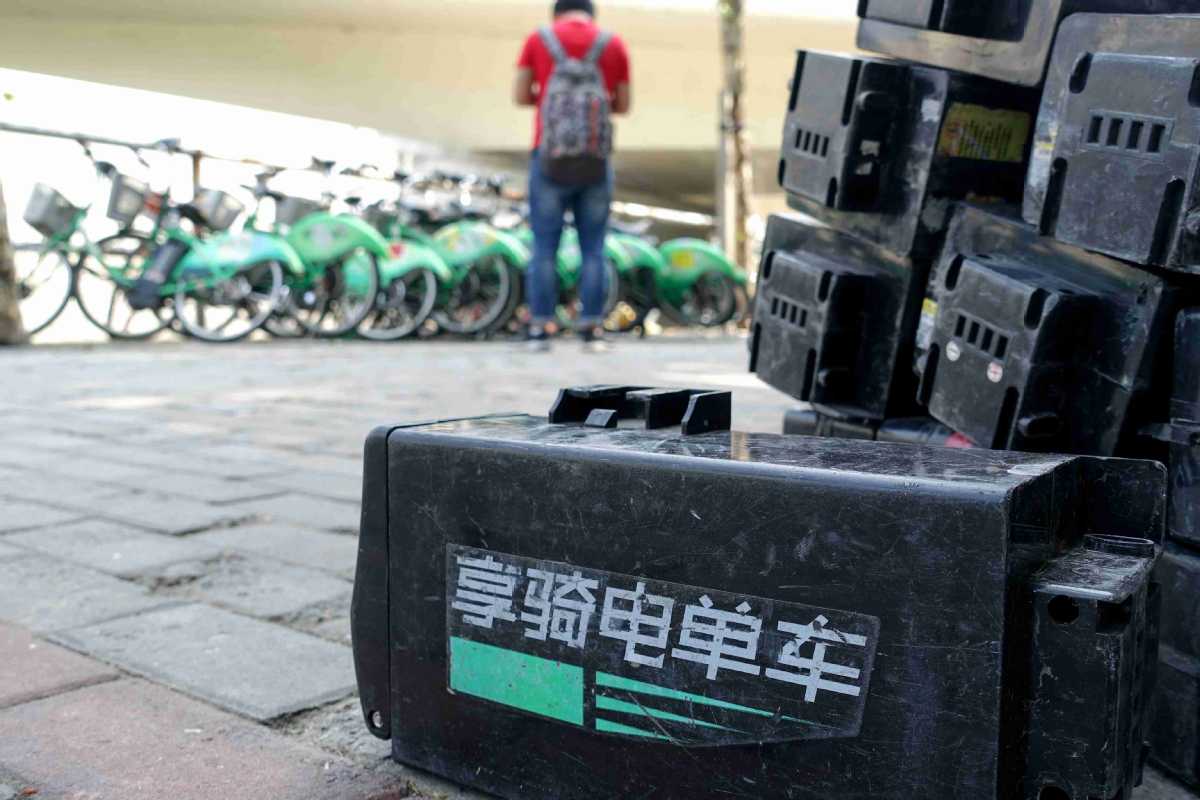Old NEV power gets plugged into new life


Even though it was dinnertime on a weekday in early May, Zhang Yuping, vice-president of GEM Co Ltd, still talked with his colleagues on the phone about the progress of transporting a batch of used power batteries from new energy vehicles-which were bought from a large-scale State-owned enterprise in Zhuzhou, Hunan province-to its waste recycling and new energy material parks in Loudi, another city in the central province.
For years, the Shenzhen, Guangdong province-based industrial waste recycling company used to wait for its clients' calls to collect obsolete NEV batteries, as it runs a number of business lines from developing new energy materials to the disposal of scrapped vehicles. However, such a way of doing business has dramatically changed since 2018.
"With China witnessing a wave of 'retirement' of NEV batteries and soaring prices of commodities such as cobalt, nickel, lithium and manganese over the past four years, we have sent more people to various provinces to secure the source of obsolete NEV batteries to maintain robust growth in recent years," he said.
"When the remaining capacity of the power battery decays to 70 percent to 80 percent, it must be 'retired', and some batteries in fine condition can be reused after testing and remanufacturing," he said, adding these new batteries can be installed on small vehicles for logistics services in cities, become a backup power source for data centers or for urban utility service facilities such as street lights.
Decommissioned power batteries with a low residual capacity can be disassembled for resource regeneration. The production of nickel, cobalt, manganese, lithium and other metals extracted from aged batteries has doubled year by year, fueled by mature technologies and practical solutions.
GEM, backed by more than 5,100 employees and more than 10 manufacturing bases across China, sold 91,000 metric tons of positive electrode precursor materials to domestic NEV battery makers through its recycling business in 2021, jumping 120 percent year-on-year. Its annual processing capacity for nickel and cobalt is about 60,000 tons and 35,000 tons, respectively.
"As we plan to recycle 300,000 tons of NEV batteries by 2025, the metals of nickel, cobalt, manganese and lithium contained in them will reach nearly 100,000 tons," Zhang said.
"However, rising prices of used batteries have impacted our cash flows," he added. "For instance, the price for a type of lithium iron phosphate battery was 150 yuan ($22.4) per kilowatt-hour in May 2021, and it has exceeded 500 yuan per kWh last month."
Insufficient used NEV battery supplies, intensified competition between recycling businesses and many companies' new moves to regard battery recycling as a strategic layout, have boosted the prices of used NEV batteries, said Yang Lei, head of the research department at the Beijing-based China Power Battery Recycling and Ladder Utilization Union.
For instance, China had 38,500 companies involved in the power battery recycling business by the end of April, with about 24,400 established in 2021, according to the union's statistics.
As of the end of March 2022, the number of NEVs reached 8.92 million in China, accounting for 2.9 percent of its total vehicle number, according to the traffic administration bureau of the Ministry of Public Security.
As the service life of the power battery is between four and six years, the first batch of batteries sold with NEVs in 2015 have gradually reached the "retirement "stage, said Yang.
China is the world's largest NEV market. According to data provided by the China Power Battery Recycling and Ladder Utilization Union, about 200,000 tons of power batteries had become obsolete in China in 2020. It is estimated that by 2030, the total number of decommissioned NEV power batteries will amount to 2.37 million tons.
Apart from domestic players, German carmaker BMW has also made inroads into used electric car batteries in China as NEVs have already gained popularity in the country, its largest market worldwide.
BMW said it set up a team in 2017 to collect used BMW car batteries, which are then evaluated by licensed companies to be reused as power storage units or dismantled for raw materials.
It sold 48,000 electric vehicles and plug-in hybrids to Chinese car buyers in 2021, up 69.6 percent from 2020.
By 2025, the capacity of spent power batteries to be recycled is expected to reach 137.4 gigawatt-hours in China. Its renewable nickel, cobalt, lithium and other metal resources will rise to between 20 percent and 30 percent of the corresponding demand, as estimated by Tianjin-based China Automotive Technology and Research Center Co Ltd.
Sun Fuquan, vice-president of the Chinese Academy of Science and Technology for Development in Beijing, said that in addition to supporting China's "3060" carbon goals, battery recycling will become one of the indispensable measures to promote the sustainable growth of NEVs, energy storage and other fields, as well as alleviate the shortage of key raw materials.
Therefore, it is vital for the government to open up more channels of green supply chain cooperation for automakers, recycling companies and battery manufacturers, and continuously improve the recycling ratio and resource utilization efficiency, he added.




































